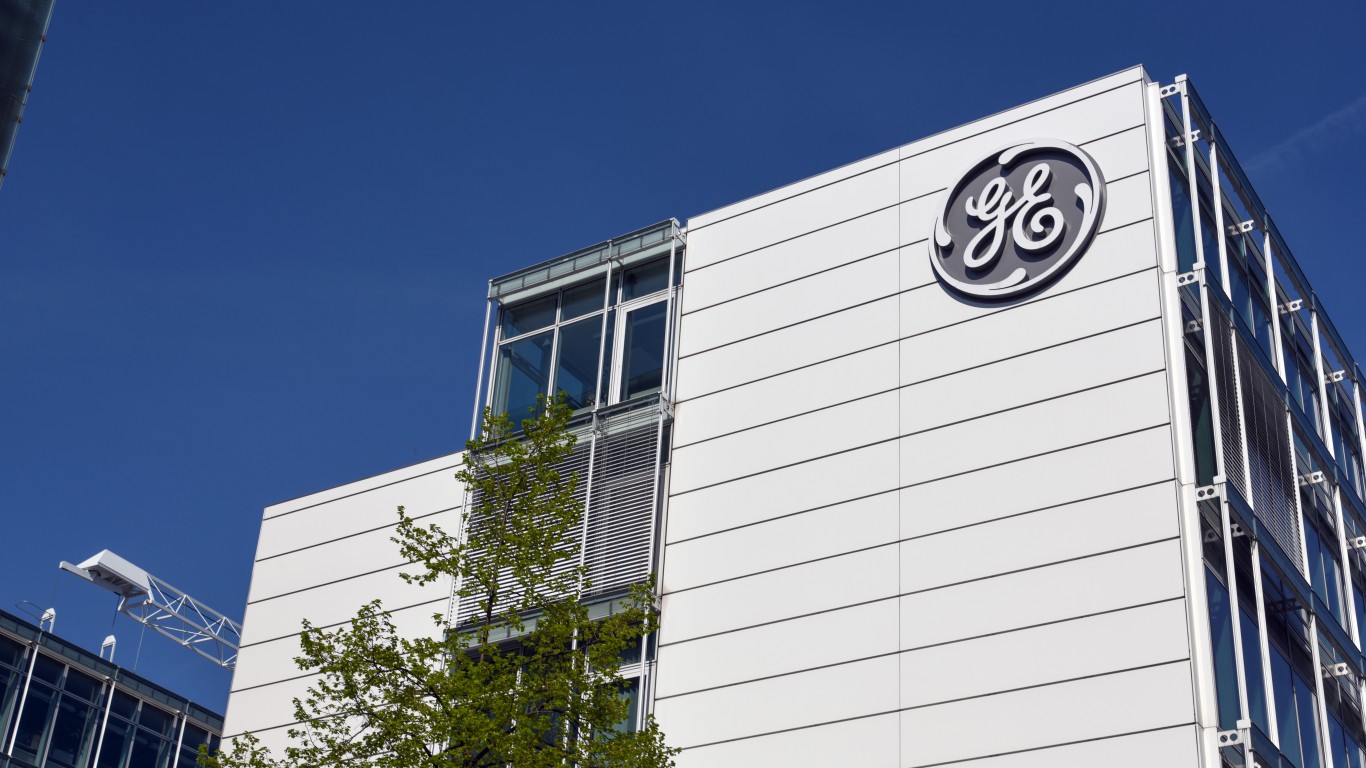Industrials
General Electric: Are the Parts Worth More Than the Whole?

Published:
Last Updated:

Shares of General Electric Co. (NYSE: GE) traded up nearly 7% shortly after Wednesday’s opening bell. There appear to have been a couple of reasons for that. First, analyst Jeffrey Sprague of Vertical Research Partners raised his rating on the stock to a Buy and lifted his price target from $10 to $11. It’s his first upgrade to GE stock in more than 10 years.
But wait, there’s more. Bloomberg reported this morning that GE has filed confidentially for an initial public offering (IPO) of the conglomerate’s health care segment, according to unnamed sources. Next to its aviation segment, health care is the company’s most profitable business. In the third quarter of this year, health care posted revenues of $4.71 billion and profit of $861 million (profit margin of 18.3%), compared to aviation segment revenues of $7.48 billion and profit of $1.67 billion (profit margin of 22.3%).
GE did not comment on the report that included a list of the usual suspects helping the company plan its listing: Goldman Sachs, Bank of America, Citigroup, JPMorgan Chase and Morgan Stanley. None of the banks commented on the report.
If the reported spin-off does materialize, GE will be one step closer to a return to being an industrial equipment maker. The company’s financial services business was spun out as Synchrony, and GE announced last summer the planned sale of its digital business. GE also sold three health-care-related businesses for just over $1 billion earlier this year. The locomotive business sold for $11 billion, and GE has also announced a plan to accelerate reducing its stake in the oil and gas business with the sale of up to 20% of Baker Hughes.
If the health care spin-off is accomplished, the company will be left with an underperforming power business, a thriving aviation business and a struggling renewable energy segment, plus a few other bits and pieces of its former empire, including a non-majority stake in Baker Hughes and, most probably, a stake in the health care business.
Bloomberg analyst Karen Ubelhart reckons that a spun-off health care business would have an enterprise value of $65 billion to $70 billion. And for a once-great company whose enterprise value today is around $180 billion (market cap of about $67 billion), that’s not a bad trade.
GE stock traded up nearly 8% in the mid-morning Wednesday, at $7.84 in a 52-week range of $6.66 to $19.39. The stock’s 12-month price target is $12.28.
The thought of burdening your family with a financial disaster is most Americans’ nightmare. However, recent studies show that over 100 million Americans still don’t have proper life insurance in the event they pass away.
Life insurance can bring peace of mind – ensuring your loved ones are safeguarded against unforeseen expenses and debts. With premiums often lower than expected and a variety of plans tailored to different life stages and health conditions, securing a policy is more accessible than ever.
A quick, no-obligation quote can provide valuable insight into what’s available and what might best suit your family’s needs. Life insurance is a simple step you can take today to help secure peace of mind for your loved ones tomorrow.
Click here to learn how to get a quote in just a few minutes.
Thank you for reading! Have some feedback for us?
Contact the 24/7 Wall St. editorial team.